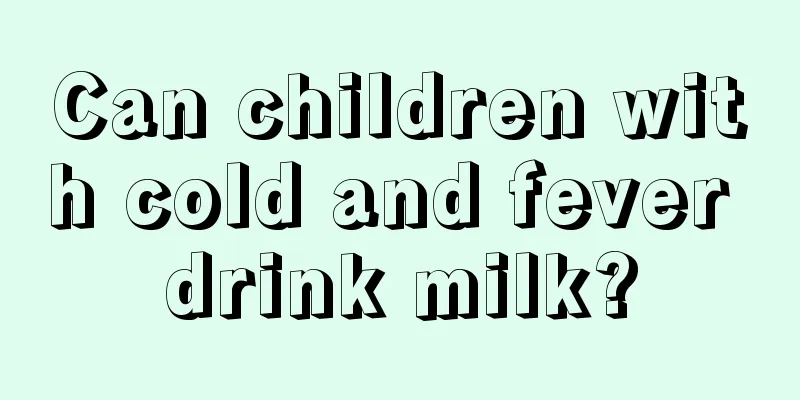What causes sweating on baby's head?

|
For many newborns or babies, mothers will find that their children always sweat a lot when they sleep, whether in summer or winter. At this time, parents will inevitably worry about the impact it will have on their children over a long period of time. In the following article, the editor will introduce to you the reasons why babies sweat on their heads! Infants and young children have an active metabolism and are active and lively. Some of them cannot rest even after going to bed at night, so they may sweat on their heads after falling asleep. The so-called physiological hyperhidrosis refers to sweating during sleep when the child is well-developed, healthy, and has no disease. Parents are often accustomed to deciding the best environmental temperature for their children based on their own subjective feelings, and like to cover their babies with more blankets and keep them tightly covered. Because children's brain and nervous system are not yet fully developed and they are in the growth and development period, their body metabolism is very active. Coupled with the stimulation of overheating, they can only regulate normal body temperature by sweating to evaporate the heat in the body. In addition, drinking milk, malted milk or eating chocolate before going to bed can also cause sweating in children. Some parents give their children milk, malted milk, etc. before they go to sleep. After the child falls asleep, the body produces a large amount of heat, which is mainly dissipated through sweating through the skin. In addition, too high room temperature or excessive warmth can also cause children to sweat while sleeping, which are all physiological sweating. Pathological sweating occurs when the child is in a quiet state, such as sweating caused by rickets, which manifests as obvious sweating on the child's head in the first half of the night after falling asleep. Because the pillow is irritated by sweat, babies often shake their heads and rub against the pillow when they sleep, resulting in sparse hair and loss of hair on the pillow, forming typical annular hair loss on the pillow, which is medically known as "occipital baldness". It is an early manifestation of rickets in infants. As long as vitamin D and calcium are supplemented in time, rickets can be controlled and sweating will stop by itself. If a child sweats not only in the first half of the night but also in the second half of the night and before dawn, it is usually a sign of illness, the most common of which is tuberculosis. Tuberculosis also has other symptoms, such as low fever, fatigue, loss of appetite, flushed cheeks, etc. Children with tuberculosis tend to sweat easily during daytime activities, which is called spontaneous sweating, and sweating at night is called night sweats. If you suspect your child is infected with tuberculosis, a lung X-ray or a tuberculin test should be done for timely diagnosis and treatment. Many times, because parents are worried that their babies will catch a cold, they will cover their children with many quilts. If the weather is hot, it is likely to affect the child's sweating. Children have a fast metabolism, so it is normal for them to sweat easily. As long as we pay attention to prevent children from suffering from calcium deficiency, everything will be fine. |
<<: What causes squint in children?
>>: Why do children keep clearing their throats?
Recommend
What is the reason for the baby's front teeth to turn black?
Teeth are the basis for us to chew food and also ...
What medicine is good for children's genital itching
Since children usually play around and do not pay...
How to control the water temperature for baby bathing
The physical health of the baby is an issue that ...
What is the importance of parent-child communication?
Nowadays, more and more people pay attention to c...
What to do if your 11-month-old baby has repeated fevers
The baby is the hope of the family and the future...
Can children eat black beans soaked in vinegar?
I believe everyone is familiar with black beans, ...
Three month old baby with diarrhea
It is very common for babies to have diarrhea. Ge...
Is foot bath suitable for children?
As people’s work pressure increases in modern soc...
What should I pay attention to when my child has watery beans?
Chickenpox is a common disease in children during...
Precautions and treatment methods for allergic asthma in children
As China's economy becomes more and more deve...
Can children grow taller by running?
Every parent hopes that their children can grow u...
What are the specific reasons why newborns cry non-stop?
For newborns, it is easy to cry incessantly. Cryi...
How to treat cerebral edema in infants
Infant brain edema is a characteristic of infant ...
Newborn baby's mouth keeps moving when sleeping
When a newborn baby is sleeping, his mouth keeps ...
Is it normal for a baby not to have a bowel movement for 7 days?
The physical health of the baby has always been a...









